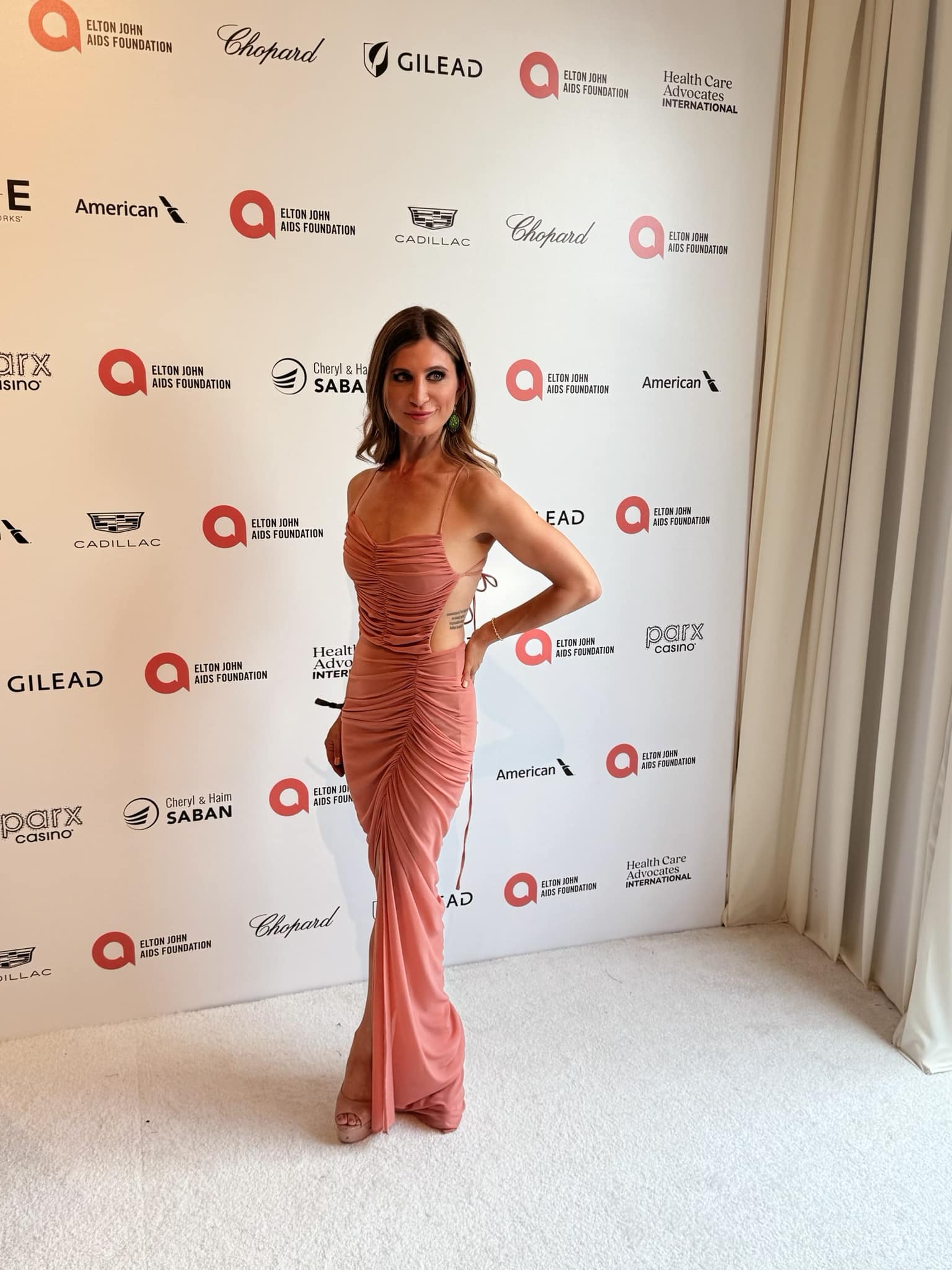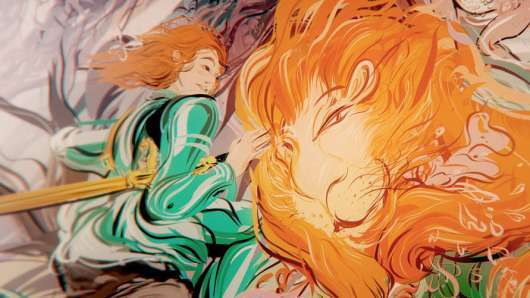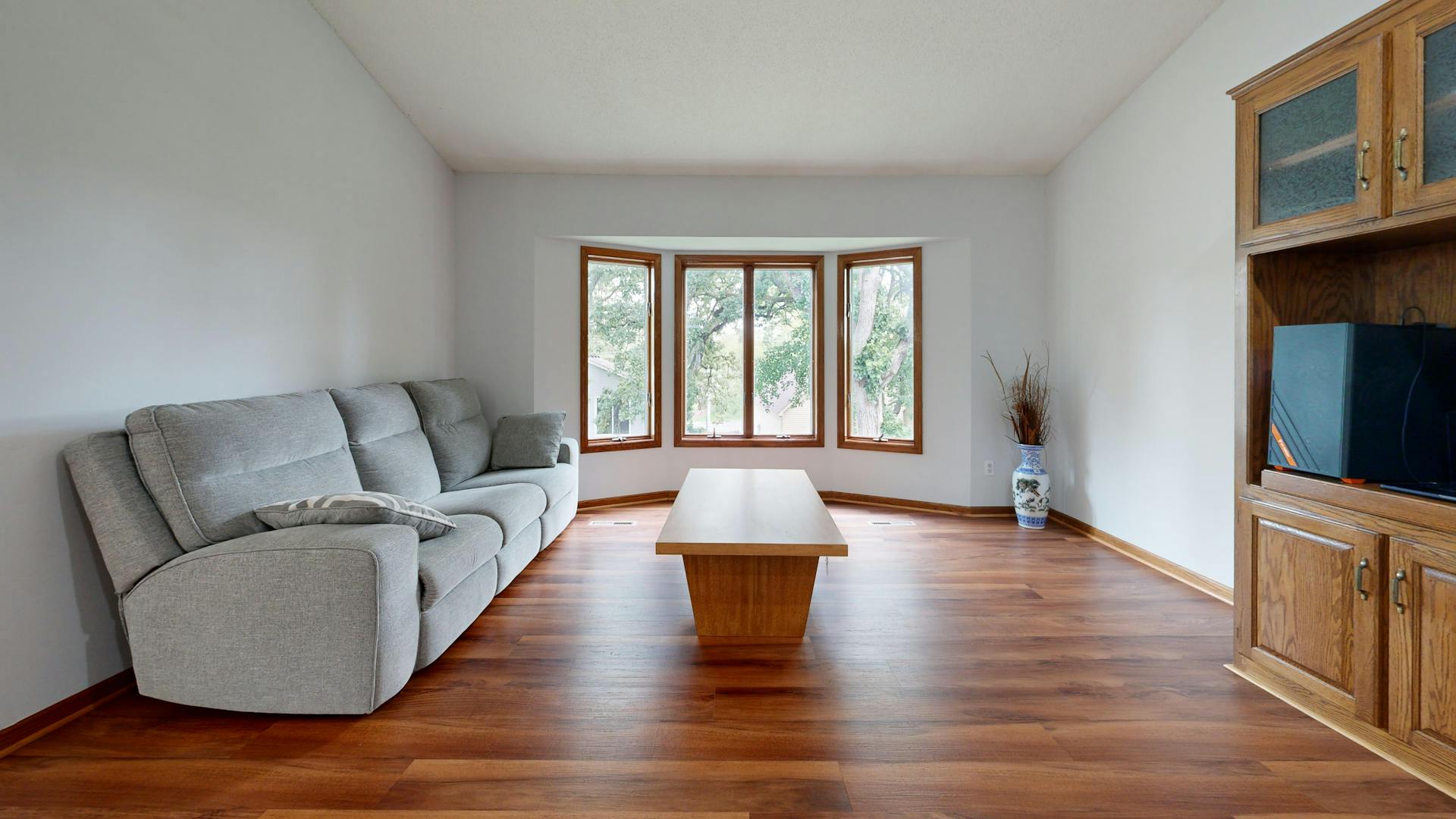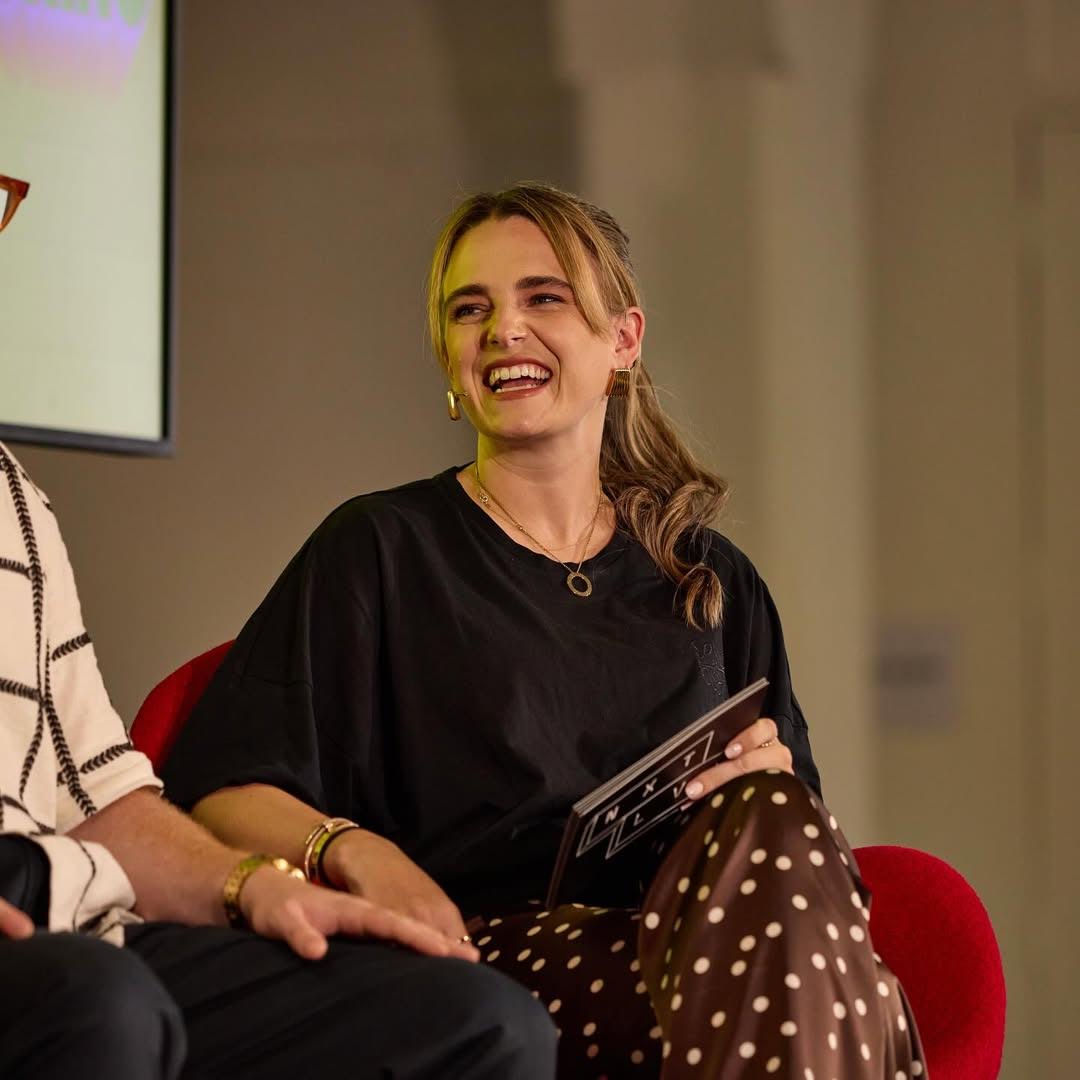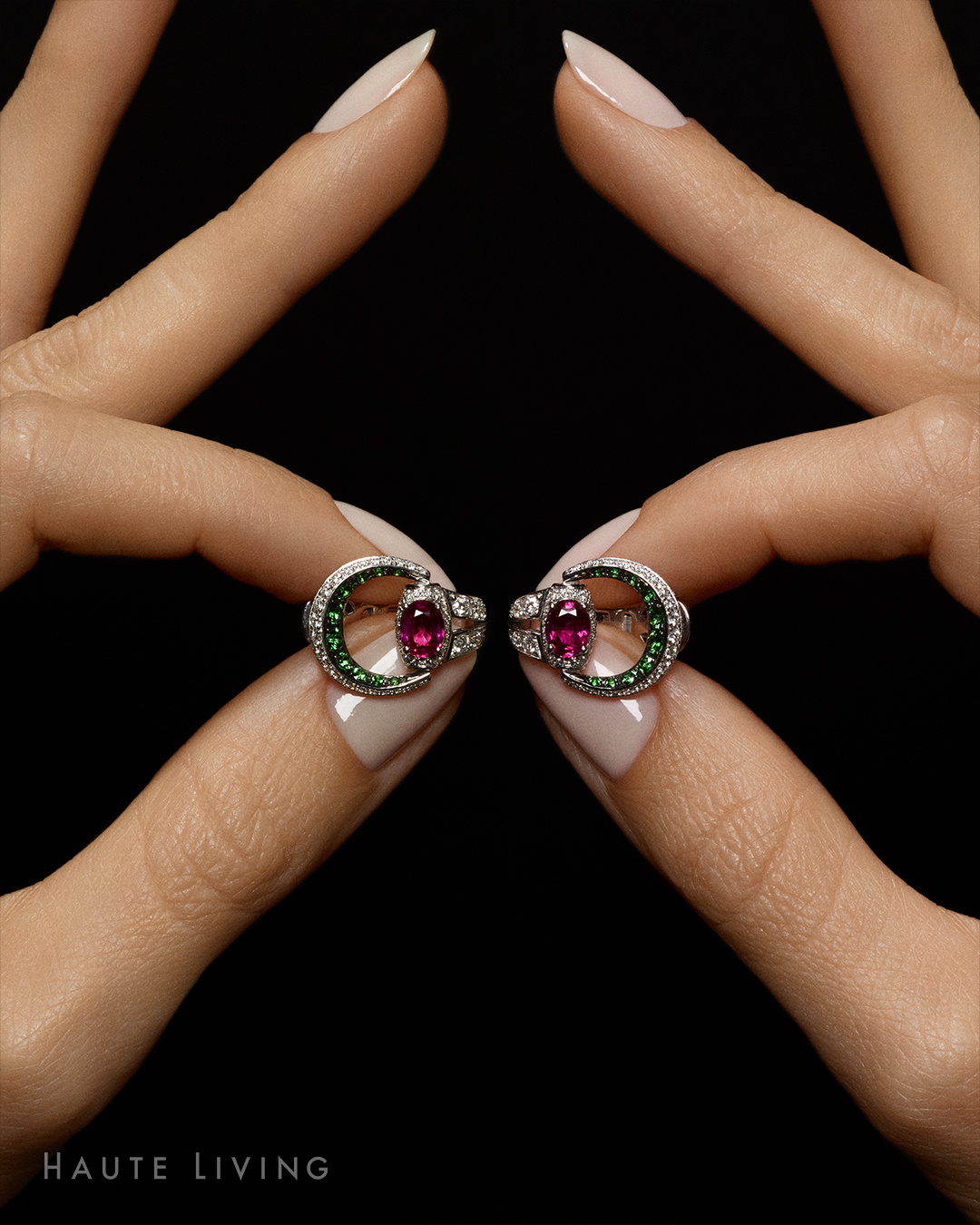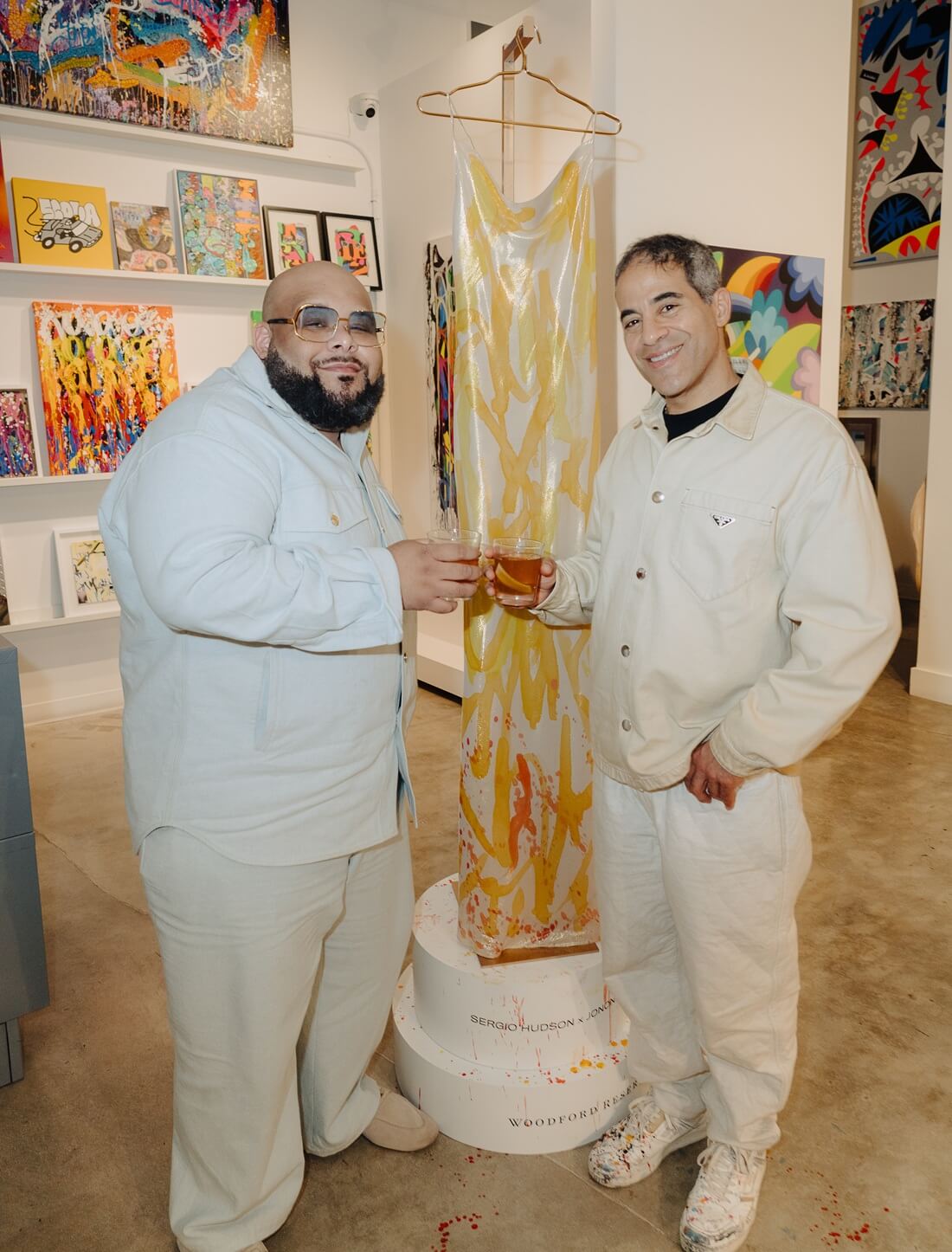Geena Davis’ Latest Project With VR Will Change Film Forever
 Photo Credit: PHIL POYNTER FOR TRUNK ARCHIVE
Photo Credit: PHIL POYNTER FOR TRUNK ARCHIVE
Hearing Geena Davis’ throaty purr in your ear would be surreal for most, but given that we’ve just heard it in both virtual reality and real reality, suffice it to say, our experience was on a whole different level.
Let’s rewind. We popped into Facebook’s Silicon Beach headquarters for a sneak peek of Oculus’ Dear Angelica, the first animated short film created entirely in VR with Quill, a tool that allows artists and creators to paint virtual reality while in virtual reality. If you think this sounds trippy, you’d be right: scenes construct themselves around you in real-time, ribbons of hyper-reality weaving and placing you in the midst of an ethereal, 360-degree parallel universe.
Davis anchors the 12-minute opus, a beautifully painted, poignant narrative of love and grief revolving around a mother and daughter (voiced by Mae Whitman). It is brilliantly shared through a series of memories that leaves most who view it either awestruck or in tears.
In fact, we are still slightly shell-shocked and breathless from the experience the following day when Davis gives us a ring. Is this reality? Unreality? Or somewhere in between?
Given that she felt similarly the first time she saw the film, the Oscar-winning actress understands our sputtering, speechless reaction. “I was destroyed,” she admits. “It’s so beautiful, and with such an incredible, moving story. It just shows what the future of that medium is going to be—it’s wide open for incredible experiences.”
When art director Wesley Allsbrook (who, unbelievably, both conceived and hand-painted the entire project) asked Davis to voice Angelica, she didn’t hesitate for a second, acquiescing through a flood of tears. But then, the role was practically destined to be Davis’—after all, in one virtual segment, the title character roars away in a convertible during a car chase with her flame-colored hair streaming behind her, a scene straight out of her 1991 crime drama Thelma & Louise.
For someone like Davis, a member of MENSA (an organization with people in the top two percentile of intelligence), creator of her own foundation, and developer of software that provides statistics on gender equality, being involved in something so cutting-edge and innovative was a no-brainer.
“This is an amazing new way to tell stories,” she enthuses. “I was just thrilled to be part of one of the first features made with VR, and certainly the first animated feature where the artist could draw in the universe of it, wearing goggles, which wasn’t possible before.” Davis adds, “What I also find very exciting is that it hasn’t been gender-biased yet. It’s an opportunity to start off a brand new visual medium with equal participation of women. I intend to encourage it as much as possible.”
 Photo Credit: Photo via Oculus and MGM
Photo Credit: Photo via Oculus and MGM
That’s putting it mildly: Davis is a true trailblazer who has vowed tomake ending gender inequality her life’s mission. In 2007, after sitting through umpteenth male-dominated TV shows with her young daughter, she launched the Geena Davis Institute on Gender in Media, the only research-based organization working with the media and entertainment industry to engage, educate and influence content creators and audiences about the importance of eliminating bias and stereotypes, while creating a slew of strong female leads onscreen. Since its inception, the institute has amassed the largest body of research on gender prevalence in family entertainment, and discovered that females are vastly underrepresented in film with a male/female ratio of 3:1.
“I was absolutely floored to find that there were far more male characters than female characters. I thought, ‘This is what we’re showing kids in the 21st century?’ I just couldn’t believe it; it seemed so pervasive―and it was everywhere.” She continues, “When working on increasing the number of female characters in kids’ media, I somehow landed on the right technique to approach the problem, which is to get the data. Nobody had any idea or noticed how few female characters there were until I had the numbers. That has made an enormous difference.”
But she didn’t stop there. In 2015, she launched the BentonvilleFilm Festival in Bentonville, Arkansas, which highlights diversity in film and accepts films that prominently feature women and minorities in the cast and crew. Now in its third year, running from May 2 to 7, 2017, the festival will open with a major player (3 Generations starring Naomi Watts, Susan Sarandon and Elle Fanning) and a slate helmed by international female filmmakers from France, India, Austria, Iran and Nicaragua, to name a few. Bentonville also happens to be the only film fest in the world that awards guaranteed distribution to its winners—an anomaly, to be sure.
“As things evolved [with the institute], I wanted to get more into diversity and gender equality. When the chance to launch this festival came up, to co-found it, I leapt. The whole concept of it is to champion women and diverse voices in all forms of media.”
In particular, she wants to support female directors and makes a valid point that, based on her research, they make up only four percent of all directors worldwide. “I’ve been working for ten plus years to advocate for women in front of the camera, but for women behind the camera, it’s impossibly embarrassing, profoundly dismal and frustrating,” she says. “The percentage of women directors [working in Hollywood] is an embarrassment. Nothing changes for female directors, nothing creates momentum. All the press predicted that everything would change after Kathryn Bigelow’s win [for her 2008 war drama, The Hurt Locker]—‘now the glass ceiling is broken and there are going to be so many more.’ It didn’t work.”
It doesn’t always work for actresses, either. She herself has faced indignity and adversity. In the past few years, she can recall one project in particular: “[There were both] female and male actors on set, and I noticed that, when the male actors approached the director to ask a question, make a comment, ask to change something, he’d just respond normally. When I approached him, just by walking up to him, he’d sort of wince. It was sort of like an involuntary shudder, like, ‘What’s she going to ask now?’ I realized, ‘Wait, this is happening a lot.’ I’m one of the most mild, polite, gentle people on a set; I’m profoundly unthreatening. I ended up pointing it out to him.” And though she’s tough, Davis is not immune. “As evolved as I think I am, it really, really, really hurt my feelings,” she admits.
But not all directors and producers are backward—there are a few doing it really right, in her opinion. She can’t stop lauding Ryan Murphy, for one, and his creation of Half, a foundation within his production company that aims to fill half the slots on any of his sets with women, people of color and members of the LGBT community. She also praises actresses Patricia Arquette, Cate Blanchett, Jennifer Lawrence, Jessica Chastain and Reese Witherspoon’s successful production company, Type A Films, and director J.J. Abrams, who sees both male and female actors for each part, even if the role was specifically written for a man.
That is her goal with Bentonville, and she’s all in. But should anyone (and by ‘anyone,’ we mean you, guys!) belittle or demean her efforts, be prepared for her wrath. “This isn’t about showing films that are directed by women and minorities and ‘Oh, isn’t it nice.’ It isn’t about encouraging independent films. It’s about trying to change the industry—impact the whole industry—because research now shows, incontrovertibly, that movies with more female characters and more diversity make more money at the box office. It’s not just a moral imperative, it’s also a financial boost to get with the program. This is the way the world is going, so let’s get there a lot faster. That’s my philosophy.”
But—and, oh, that ‘but’—as much as she’d like the fight to be progressing forward, she isn’t blind to reality. Women didn’t organize national post-inauguration marches without reason. “There’s been such a tremendous reaction to this backwards moving position we find ourselves in. Nothing has happened like that [Women’s] March on Washington for a long time,” Davis says. “It’s profoundly unfortunate that we find ourselves in this position where people are trying to roll back the gains that we’ve made when we need to be stepping on the gas moving forward much, much faster. At the same time, it’s really sparked something in women and men, where we don’t accept it. If you can look for a silver lining in all of this, it’s that women and girls are terrifically aroused now to fight for their rights.”
And it’s arguable that she has always seemed to know how to do that, with a path almost predestined for success. After graduating from Boston University, the Wareham, Massachusetts native scored a modeling contract while serving as a window mannequin for Ann Taylor. Then, while modeling, she met Sydney Pollack, who cast her as a soap opera actress in his 1982 film Tootsie. She found consistent TV work before her film career took off in 1985 with Fletch, continuing on with popular films like The Fly, Earth Girls Are Easy and Beetlejuice before her Supporting Actress Oscar win for the 1988 drama The Accidental Tourist.
But it wasn’t until she filmed Thelma & Louise in 1991 that the game changed for Davis. Ridley Scott’s road trip movie received six Academy Award nominations—including Best Actress nods for Davis and her co-star, Susan Sarandon—and became a feminist film classic. She followed this up by starring in another girl-powered movie, Penny Marshall’s
1992 sports dramedy A League of Their Own, a fictionalized account of the real-life All-American Girls Professional Baseball League. Both films have been selected by the United States Library of Congress for preservation in the National Film Registry and dubbed “culturally, historically, or aesthetically significant.”
They also made a major impact with their star, and set the course for every onscreen decision she’s made since. “Yes, there’s a deliberate aspect to my choice of roles, but you can only choose from what’s offered to you unless you’re a brilliant writer—which I’m not. So you’re limited by what comes your way, [roles] with the women in the audience in mind. What are they going to think about my character?”
Not that this was case when she was starting out: “I just was interested in finding roles where I got to do something interesting for sel sh reasons. As an actor, I wanted to have an adventure or an experience and not just be the girlfriend of the person having the experience. I did some unusual lms in the beginning—The Fly, Beetlejuice and Earth Girls Are Easy—because I just thought that was what I was looking for. I thought, ‘What is there [that’s] interesting about this that gives me something to work and have fun with?’
But then… “After I did Thelma & Louise, the reaction to that was just so huge and unexpected. Nobody with the lm had any clue that it would strike a nerve like that. It was a huge shock. The passion of people who might recognize me and talk about their reaction to the lm was just extraordinary, and made me realize very powerfully how few opportunities we give women to feel inspired and excited by the female characters coming out of a movie. That’s when I decided, ‘I’m really going to think about this in the future when I’m choosing roles.’ The very next movie I did was A League of Their Own, and that exploded in a different way. I had so many girls and young women who wanted to tell me that they play sports because of that movie. I thought, ‘Wow, this is very eye-opening to be in these two movies back-to-back and [it] definitely changed my life and colored everything I have done since then.”
Since shooting A League of Their Own—which celebrates its 25th anniversary this year—she has starred as a reporter in Hero, an office worker dreaming of a better life in Angie, an insomniac writer in Speechless, a schoolteacher in the neo-noir The Long Kiss Goodnight, and a pirate in Cutthroat Island, to name a few. Some of her newer projects include Marjorie Prime, the lm adaptation of Jordan Harrison’s Pulitzer-Prize nominated play that debuted at this year’s Sundance Film Festival, and the comedy Don’t Talk to Irene. She has also appeared on several TV shows, including Grey’s Anatomy and, currently, plays the lead role on Fox’s small screen The Exorcist adaptation. (As a side note, regardless of her gameness to appear in an often discussed Beetlejuice sequel, she can’t actually see it happening. “Of course I would do it if asked, but I have a feeling [that] ghosts don’t age.” She notes dryly, “It’s been almost 30 years for Alec [Baldwin] and [me]. One of us has aged, at least!”)
In recent years, her interests have been varied and diverse, which is fairly typical of her personality, in her opinion. “I take things too far,” she maintains. “Whatever it is I get interested in, I want to go to the Olympics in it. I got appointed to the State of California Commission on the Status of Women quite a few years ago—when Arnold Schwarzenegger was the governor, actually. I was like, ‘Wow, I didn’t even realize that California had a Commission on the Status of Women,’ and then I was like, ‘I wonder if there’s a Global Commission on the Status of Women. Why don’t I get on that one?’ If they have a Universal Commission on the Status of Women, that’s the one I want to be on,” she laughs.
Speaking of the Olympics, well, that almost really happened, too. A er taking up archery as a hobby in 1997, she vied for a semifinalist berth on the U.S. Olympic archery team, placing 24th out of 300 women who tried out.
All this to say, her mountains of success have put Geena Davis in a clear position to help lead the charge for women. In addition to her work with the institute and lm festival, another relatively recent effort includes the She’s Got Drive collaboration with the Ford Motor Company and YouTube, a content campaign that highlights—what else?—female empowerment.
It isn’t surprising that she refuses to compromise on the roles she’ll play in the future, either, given what care she’s taken with them in the past. “I want to play characters that are in charge of their own fate, in charge of their own destiny, captaining their own ship.”
She pauses and, with a throaty, very Geena Davis chuckle, concludes, “I’d like to do more action movies. I’d say, whatever Liam Neeson turns down, ask me.”

